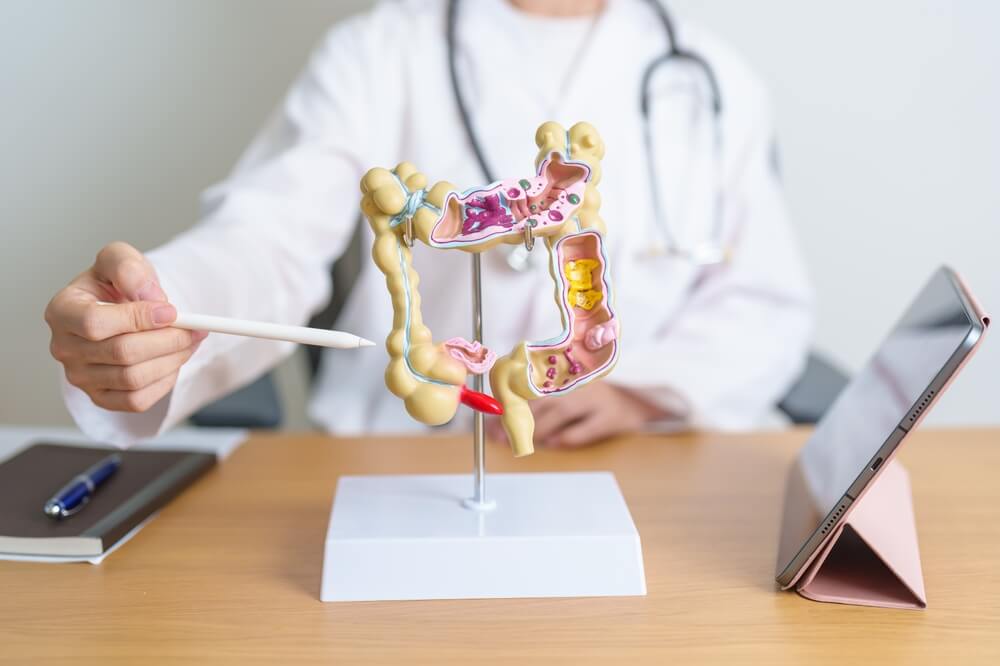Laparoscopic colorectal surgery has revolutionized the treatment of various colorectal conditions. Understanding what to expect from procedures such as colectomy, a colon resection or colon removal can alleviate anxieties and empower patients to make informed decisions about their healthcare journey.
Laparoscopic colon resection, a minimally invasive surgical procedure, involves the removal of a segment of the colon affected by diseases such as cancer, diverticulitis, or inflammatory bowel disease. This advanced technique offers numerous benefits, including smaller incisions, reduced pain, shorter hospital stays, and faster recovery times compared to traditional open surgery. For individuals considering laparoscopic colon resection in the Miami area, it is important to choose the most suitable medical practice.
If you want a team of highly skilled surgeons specializing in minimally invasive colorectal procedures contact Surgical Solutions of Miami and receive top-notch care and personalized treatment plans tailored to your unique needs.
Laparoscopic Colorectal Surgery 101

Laparoscopic colorectal surgery, often hailed as a game-changer in modern surgical techniques, represents as mentioned, a minimally invasive approach to treating various colorectal conditions. This cutting-edge procedure involves making small incisions in the abdomen through which specialized instruments and a tiny camera are inserted to perform intricate surgeries on the colon and rectum.
Unlike traditional open surgery, laparoscopic colorectal surgery offers patients numerous advantages, including reduced postoperative pain, shorter hospital stays, quicker recovery times, and minimal scarring.
It is a highly versatile technique, capable of addressing a wide range of conditions, such as colorectal cancer, inflammatory bowel disease, diverticulitis, and polyps. Patients considering laparoscopic colorectal surgery should seek out experienced surgeons and medical centers with a track record of excellence in this field, ensuring they receive the highest quality of care and optimal outcomes for their specific condition.
The Procedure
The laparoscopic colorectal surgery procedure is a meticulously orchestrated surgical intervention that utilizes cutting-edge technology and advanced techniques to address various colorectal conditions. It typically begins with the patient being placed under general anesthesia to ensure comfort and safety throughout the procedure. Once the patient is sedated, the surgeon makes several small incisions in the abdominal wall, through which specialized instruments and a laparoscope are inserted.
The laparoscope, equipped with a tiny camera and light source, provides the surgeon with a magnified view of the internal organs, allowing for precise navigation and manipulation. With the assistance of the laparoscope and other instruments, the surgeon meticulously performs the necessary surgical tasks, such as colon resection, colectomy, or resection surgery, depending on the specific condition being treated.
Throughout the procedure, the surgical team closely monitors the patient’s vital signs and adjusts their approach as needed to ensure optimal outcomes. Once the surgery is complete, the incisions are carefully closed, and the patient is transferred to a recovery area to begin the healing process.
Below you can find more information on each of the abovementioned surgical tasks when it comes to the issues with your colon.
Colon Resection
Colon resection, also known as bowel resection, is a surgical procedure aimed at treating various conditions affecting the colon, such as colorectal cancer, diverticulitis, or inflammatory bowel disease. During colon resection, the surgeon carefully removes the affected portion of the colon and may also remove nearby lymph nodes if necessary.
This procedure is crucial for preventing the spread of disease and restoring normal bowel function. In cases where the cancer has not spread extensively, colon resection can often be curative. Laparoscopic colon resection, a minimally invasive approach, offers patients benefits such as smaller incisions, reduced pain, shorter hospital stays, and faster recovery times compared to traditional open surgery.
However, the specific approach to colon resection may vary depending on the individual patient’s condition and the surgeon’s expertise. It is essential for patients to discuss their options thoroughly with their healthcare team to determine the most appropriate course of treatment.
Colectomy
A colectomy is a surgical procedure performed to remove all or part of the colon, also known as the large intestine. This procedure may be necessary to treat conditions such as colorectal cancer, inflammatory bowel disease, diverticulitis, or severe gastrointestinal bleeding. During a partial or total colon removal, the surgeon carefully removes the diseased portion of the colon and may also remove nearby lymph nodes if there is concern about cancer spread.
The remaining healthy portions of the colon are then reconnected, allowing for the continuity of the digestive tract. Colectomy can be performed using traditional open surgery or minimally invasive techniques such as laparoscopic or robotic-assisted surgery. Minimally invasive colectomy offers patients advantages such as smaller incisions, reduced postoperative pain, shorter hospital stays, and quicker recovery times compared to open surgery.
The approach to colectomy depends on various factors, such as patient’s condition or their overall health. Make sure, if you are considering getting a colectomy, to discuss your options with the healthcare team to get the most appropriate treatment plan for your specific needs.
Resection Surgery
Resection surgery refers to the surgical removal of a portion of an organ or tissue, often necessary to treat various medical conditions. In the context of colorectal surgery, resection surgery typically involves the removal of diseased or damaged sections of the colon or rectum. This procedure may be performed to treat conditions such as colorectal cancer, inflammatory bowel disease, diverticulitis, or large polyps that cannot be removed through other methods.
The goal of resection surgery is to remove the affected tissue while preserving as much healthy tissue and function as possible. Depending on the extent of the disease and the patient’s overall health, resection surgery can be performed using traditional open surgery or minimally invasive techniques such as laparoscopy or robotic-assisted surgery. Minimally invasive techniques provide patients with benefits including decreased incision size, alleviated discomfort, briefer hospitalization periods, and expedited recovery periods in contrast to traditional open surgical procedures.
Nevertheless, the particular method for resection surgery hinges on several factors, encompassing the patient’s health status, the size and location of the afflicted tissue, and the proficiency of the surgeon. It is imperative, as with all other approaches, that individuals contemplating resection surgery engage in comprehensive discussions with their healthcare providers to voice their unique requirements.
Recovery and Rehabilitation

After laparoscopic colorectal surgery, patients can expect a period of recovery and rehabilitation. While recovery times vary depending on the specific procedure and individual patient factors, most patients can expect to return to normal activities within a few weeks. During the initial recovery period, patients may experience some discomfort, swelling, or bruising around the incision sites. However, these symptoms typically subside with time and proper care.
Potential Complications
Like any surgical procedure, laparoscopic colorectal surgery carries certain risks and potential complications. These may include infection, bleeding, blood clots, or damage to surrounding organs or tissues. However, the risk of complications is generally low, especially when the procedure is performed by an experienced surgeon in a specialized medical center.
Conclusion
Laparoscopic colorectal surgery offers patients a safe and effective treatment option for various colorectal conditions. By understanding what to expect from the procedure, patients can approach their surgery with confidence and optimism for a successful outcome.
If you have any questions or concerns about laparoscopic colorectal surgery, contact our clinic today and schedule a consultation. We can help you feel better, so call us today!


